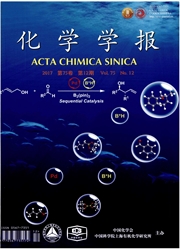

 中文摘要:
中文摘要:
以人宫颈肿瘤细胞(Hela细胞)为研究对象,研究了可见光催化(光强为50mW/cm^2)条件下,该复合材料Fenton作用对细胞的凋亡诱导作用和细胞周期的影响,并对抗肿瘤作用机理进行探讨.结果表明,该复合材料对肿瘤细胞具有明显的杀伤作用,抑制Hela细胞增殖,降低细胞存活率,诱导Hela细胞产生细胞凋亡.此外,还能够引起细胞周期各时相改变,使细胞生长阻滞于G2/M期.并引发细胞氧化应激反应的发生,最终破坏胞内抗氧化酶体系的平衡.由此可见,纳米TiO2-Cu2O复合材料在抗肿瘤的可见光疗应用中具有一定的应用价值.
 英文摘要:
英文摘要:
TiO2-Cu2O nano-composite was obtained by a novel electrochemical method. The effects of TiO2-Cu2O Fenton coating on proliferation and induced apoptosis in Hela cells were investigated. The changes of cell cycle were observed too. Results revealed that visible light-photocatalysis (50 mW/cm^2) under 3 min resulted in considerably low cell viability and produced characteristic apoptotic events in Hela cells including morphological changes, DNA ladder formation and increased number of cells with G2/M phase. Furthermore, the mRNA level of IκBα was significantly increased under phototreatment for 5 min on Hela ceils. The antioxidant defense system and MDA were investigated. It was found that the imbalance of the antioxidant enzyme system induced under the phototreatment contributed to oxidative stress. These resuits indicated that the TiO2-Cu2O Fenton coating led to enhanced growth inhibition and apoptotic production. The TiO2-Cu2O nano-composites might be used as a new anti-cancer modality to cancer treatment under a visible light condition.
 同期刊论文项目
同期刊论文项目
 同项目期刊论文
同项目期刊论文
 Preparation, characterization and photocatalytic properties of CdS nanoparticles dotted on the surfa
Preparation, characterization and photocatalytic properties of CdS nanoparticles dotted on the surfa Aligned 2-D Nanosheet Cu2O Film: Oriented Deposition on Cu Foil and Its Photoelectrochemical Propert
Aligned 2-D Nanosheet Cu2O Film: Oriented Deposition on Cu Foil and Its Photoelectrochemical Propert Template-free synthesis of BiVO4 nanostructures: ( Ⅰ ) nanotubes with hexagonal cross sections by or
Template-free synthesis of BiVO4 nanostructures: ( Ⅰ ) nanotubes with hexagonal cross sections by or In situ Fenton reagent generated from TiO2/Cu2O composite film: A new way to utilize TiO2 under visi
In situ Fenton reagent generated from TiO2/Cu2O composite film: A new way to utilize TiO2 under visi Self-assembled monolayer of organic iodine on a Au surface for attachment of redox-active metal clus
Self-assembled monolayer of organic iodine on a Au surface for attachment of redox-active metal clus 期刊信息
期刊信息
